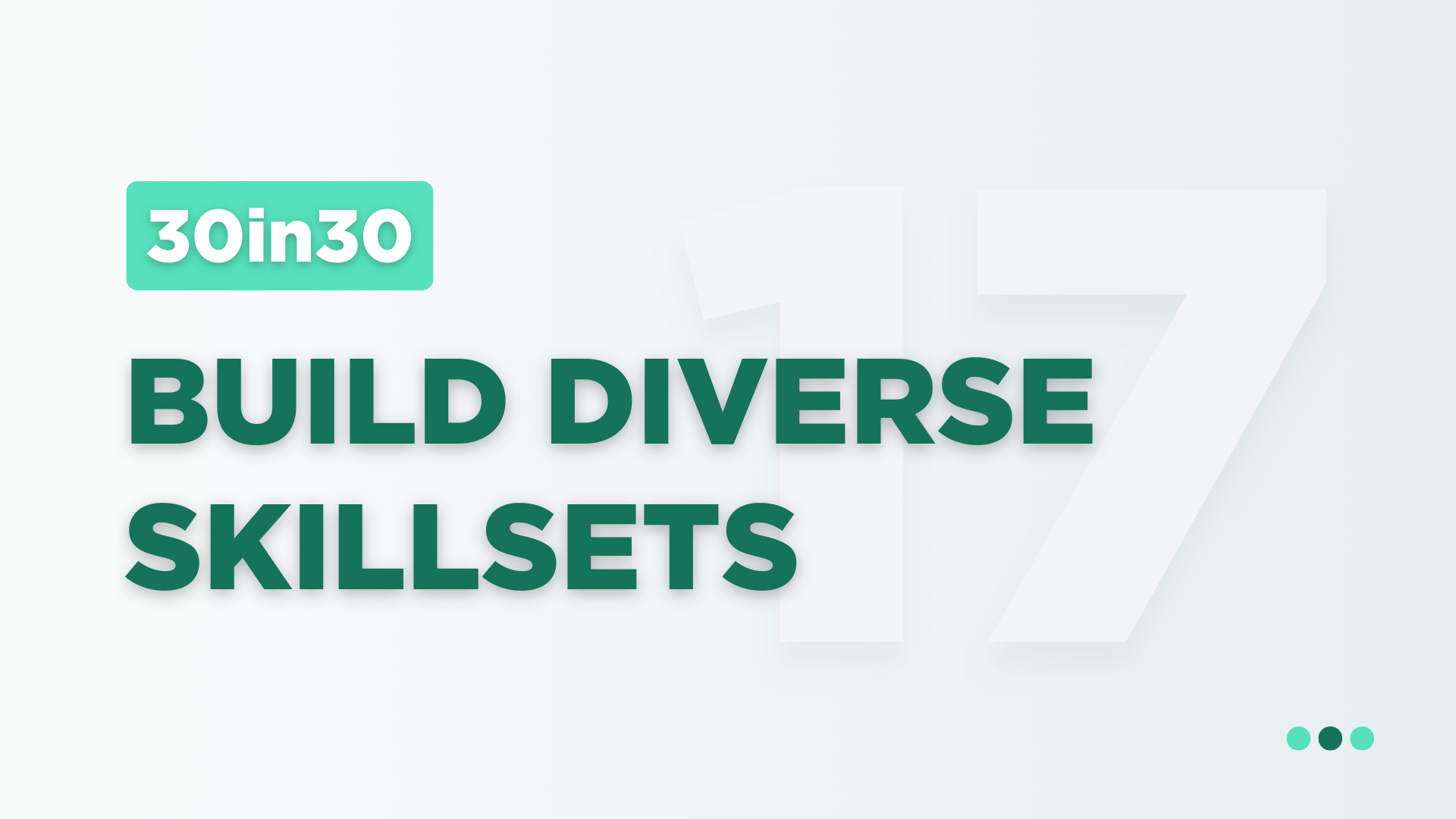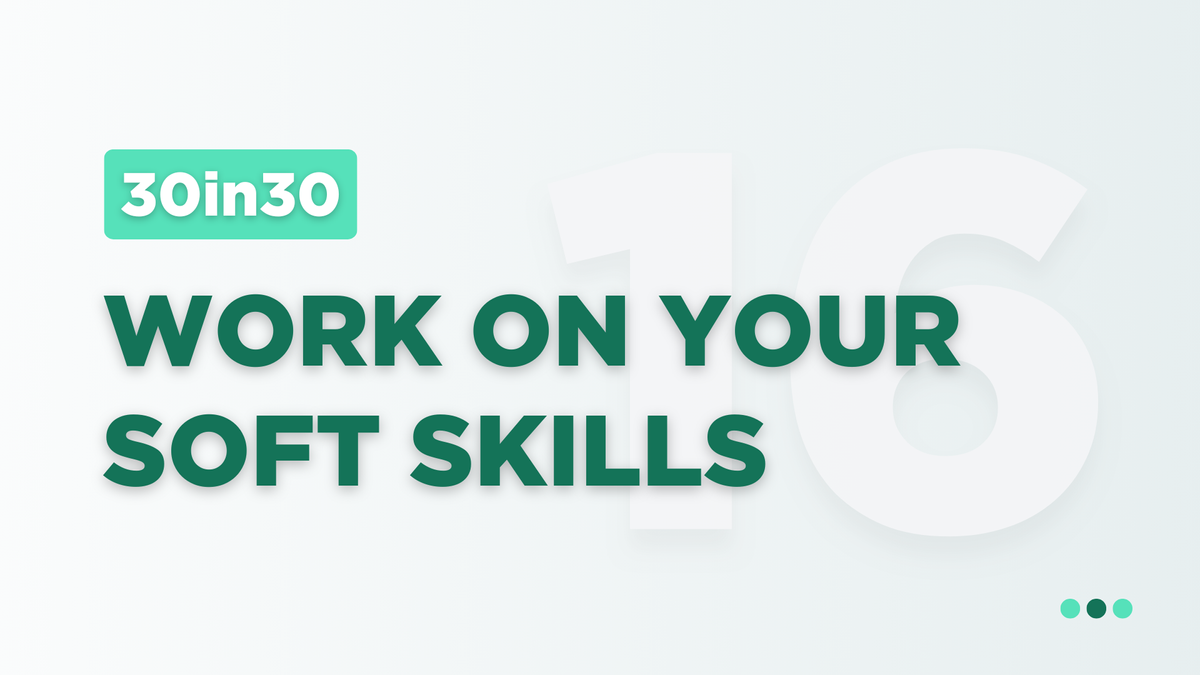Build Diverse Skillsets

Lesson 17: Diversify Your Skillset to Unlock New Opportunities
Having talked about soft skills in lesson 16, let’s explore the value of technical skills. Technical skills are like tools in a toolbox: the more you have, the more problems you can solve, and the more versatile you become in navigating an ever-changing world. Developing secondary or even multiple technical skills, especially those outside your core profession, not only enriches your expertise but also opens doors to unexpected opportunities.
My Love and Journey Into Tech
In addition to my love for art, my passion for technology began when I joined high school and was introduced to computers. It was a revelation, opening a new world of exploration and tinkering. My curiosity grew as I delved into tech devices. After high school, my first job at a stationery bureau that doubled as an internet café became a training ground. I taught myself foundational skills like software installation, device setup, and computer networking—skills I needed to manage the café’s operations.
Later, working at Vodafone accelerated my technical journey in unexpected ways. As a humanities graduate with no formal background in engineering, I was initially nervous about stepping into such a technical field. However, during the onboarding training, my foundational knowledge in tech—gained from my earlier experiences at the internet café—stood out. This knowledge played a significant role in my assignment to the Network Operations Center (NOC), where I worked alongside some of the country’s top telecom engineers. The NOC was a dynamic environment where I gained hands-on experience in advanced networking, troubleshooting, and system monitoring. My growing proficiency eventually led to a role in back-office support, where I provided technical assistance to customer care teams. These roles exposed me to cutting-edge technologies and processes, enabling me to build advanced skills that would continue to set me apart in future opportunities.
In 2020, I rediscovered Notion while working on the Red Notebook project. This powerful no-code platform introduced me to a world of No-Code development—a method that allows users to create applications, websites, and automated workflows without writing code. This rekindled my passion for technology. Over the past four years, I’ve intentionally developed my skills in this area, dedicating time to mastering Notion and exploring other no-code tools to build innovative solutions. This secondary skill has not only become a fulfilling passion, but also a source of income, as I’ve leveraged it to work on paid projects that create value for individuals and organizations alike.
Why Build Secondary Skills?
- Career Versatility: Adding secondary technical skills enhances your adaptability, making you a resourceful team member in any industry.
- Increased Opportunities: Cross-disciplinary expertise often leads to unique opportunities, from collaborations to new career paths.
- Problem-Solving: With diverse skills, you approach challenges with a broader perspective and a richer toolkit.
- Personal Fulfilment: Exploring unrelated fields can rekindle creativity, spark joy, and make you a more well-rounded individual.
Technical Skills You Can Leverage Across Fields
- Digital Productivity Tools: Mastering tools like Notion, Airtable, Asana, or Trello can streamline workflows and improve organization in any industry.
- Data Analytics: Skills in tools like Excel, Google Sheets, or Tableau enable informed decision-making in fields such as business, marketing, or social impact.
- Graphic Design: Proficiency in Adobe Illustrator or Canva enhances your ability to create compelling visual content for marketing, education, or entrepreneurship.
- Programming Basics: Learning beginner-level programming like Python or HTML equips you with problem-solving abilities and access to tech-related projects.
- Financial Literacy Tools: Tools like QuickBooks or Xero help you manage finances effectively in personal or professional contexts.
- Video Editing: Basic skills in Premiere Pro or DaVinci Resolve elevate storytelling and content creation across industries.
- No-Code Development: Platforms like Webflow, Bubble, and Zapier let you build apps and automate workflows, unlocking possibilities without traditional coding.
- Writing: Proficiency in writing enhances communication across industries, from drafting reports to creating engaging content. Regular practice, wide reading, and tools like Grammarly can refine this skill. Specializing in areas like technical writing or storytelling through courses adds even more value.
How to Build Secondary Skills Intentionally
- Start with Curiosity: Identify areas that intrigue you. Explore online resources like YouTube tutorials, blogs, or free courses.
- Set Clear Goals: Decide on a skill you’d like to master and set achievable milestones, such as building a project or earning a certification.
- Invest Time Regularly: Dedicate consistent hours to practice and application.
- Join Communities: Engage with groups or forums where like-minded individuals share knowledge and collaborate.
- Leverage Real-World Application: Work on projects, volunteer, or take freelance gigs to put your skills into practice.
The skills you choose to develop today can shape the trajectory of your future. Whether you’re delving into a completely unrelated field or building on an existing passion, every new technical skill adds a layer of resilience and value to your personal and professional journey.
So,
What technical skill will you start building today?
In case you missed lesson 16, you can read it here.


